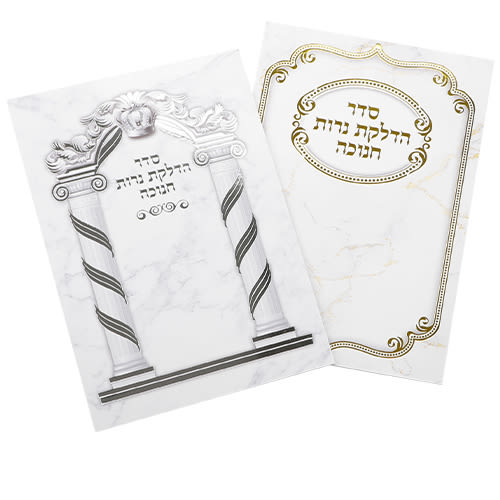
Ekev: Service with a Smile
The difference between the tzaddikim and normal people is the extra effort tzaddikim devote to doing Hashem’s will and to bring Him gratification…

Parshat Ekev
And you shall love the Lord your G-d and serve him with all your heart…(Deut. 11:13)
After meeting the Maggid of Mezrich, the flames of Chassidus ignited the soul of Reb Zushia of Anipoli. When his brother Reb Elimelech met up with him he noticed the change in Reb Zushia immediately. Once, Reb Elimelech followed him, and saw him run out to the forest to converse with his Creator. That in itself wasn’t so strange (even though the practice of hisbodidut, personal prayer, wasn’t as popular as it is today), but what was worse was that he saw Zushia standing on his head (yoga was not known in the Ukraine at the time!). “What in the world is my brother doing?” he wondered. He decided to confront his brother and ask him straight out.
Reb Zushia answered him with the following story.
There once was a man that lived in a rural area who owned a small farm. He and his wife worked very hard and together built their business into a very successful livelihood. In those days, far away in the capital lived a great king, kind and merciful, who was loved by all his subjects. One day the farmer turned to his wife and said, “What are we doing here on this farm so far away from the King? Let’s move to the capital.” The man continued, “What is life if we can’t be close to the King? What meaning does our monetary success have?” His wife agreed. They sold their farm and possessions and moved to the capital, the city where the king lived. After their arrival, the burning love in the farmer’s heart had not yet cooled. He said to his wife, “It’s great to be in the capital but somehow I must make it into the King’s castle.” They decided to use their savings to bribe one of the castle’s officials to purchase a job within the castle’s walls. He began to work tending the fireplace of the King. With great love, fear and precision he prepared the fireplace so it would burn just right for his beloved king. Within just a few days the king noticed the special efforts being made by whoever was tending the fire. He commanded that the man be brought before him.
The king thanked the man for putting so much love into his work and asked him what gift he would like as acknowledgment of his efforts. The man explained to the King how he had sold his farm to move to the capital so he could be close to him. He was so happy to be able to work in the palace that he didn’t want anything because serving the King was the greatest gift. The only thing he could think of was to be able to see the King whenever he wanted. The King was very happy to hear that this was his only wish, but on the other hand, it was an impossible request. The King thought and came up with an idea. He said, “I’ll make a hole in the chimney and when I’m sitting on the throne, you’ll be able to see me.” Well, the man was thrilled. He could hang himself upside down in the chimney and peek through the hole daily to see the King.
One time he saw the King sitting at a meal with his ministers, and his son, the prince. The prince had too much to drink and let his tongue loose, saying inappropriate things. The King got angry and banished the prince from the castle. After a while, the prince regretted what he had done, and had a longing to return to his father. He once came by the palace and saw the fire maker hanging upside down in the chimney with his feet in the air. “What are you doing?” he asked. The man said, “I’ll show you. Come look here in the hole.” The prince looked through the hole and saw his father, the King. He was so happy to see his father that he asked permission to come again and look the next day. The man refused. He said, “This is not your way. You are the son of the King. All you have to do is watch your mouth and you can be inside the palace with the King.
Reb Zushia said to his brother. ”Now you can understand why I stand on my head. Melech, (his nickname, which is short for Elimelech) “Go to the Maggid and he’ll tell you how to serve the King in your own way.”
This powerful story changed the life of Rebbe Elimelech and leaves us with several important messages. One message pertains to the verse in this week’s Torah reading,
And you shall love the Lord your G-d and serve him with all your heart…(Deut. 11:13)
The Rabbis teach us that in addition to the commandment to love Hashem (see last week’s teaching COMMANDED LOVE) the intent of the words in this verse is the implementation of service. G-d commands us to love Him, not because He needs it, but rather out of love for us, for our benefit. This is true of all service of Hashem—He does not need our matzah, or our lulav, or even our prayers, for according to our principles of faith Hashem lacks nothing. So, why are we commanded to serve Hashem with all of our heart and all of our might? The answer is that, through serving Hashem whether with mitzvot or any other means, Hashem is giving us the opportunity to be close to Him, to attach ourselves to Him and ultimately to reach higher perceptions of His essence.
Rebbe Nachman in Lekutei Moharan 2:5:15 elaborates on the lesson we learned from Reb Zushia’s story. When serving Hashem one especially needs to cast off his intellect. To throw off all of his intellectual wisdom and to perform his service with complete simplicity. As it says in the Ethics of Our Fathers, Chapter 3, “One’s deeds should outweigh his wisdom.” The essence isn’t the Midrash (what is learned), rather one’s deeds. One has to cast away his sophistication even if it is true wisdom! Even someone who has achieved a great level of understanding, even if his perceptions are concerning the mitzvah at hand, he must cast away all of his wisdom before performing that task. One must do things for Hashem that at times might even look crazy, as it says in Mishlei 5, “In your love I am crazy.” For one must be ready to roll in all kinds of mud and filth for Hashem. And not just in mitzvah observance, even for something that is just a custom. Anything that is the will of Hashem in order to bring about pleasure to Him.
There are two types of service. There’s the service of a son who has permission to access the hidden chambers of the King. Then there’s the service of a plain servant who must ask no questions. Now, when the Prince loves his father so much that he’s willing to serve him in ways that even a simple servant would refuse to do, for example, to throw himself into the mud and filth in order to evoke the joy of the King, then the king reveals to his son secrets that were hidden to him previously.
This teaching in Lekutei Moharan was inspired by something that actually happened to Reb Nachman. One Rosh Hashanah, when the Rebbe was participating in the service of Tashlich (performed on the afternoon of Rosh Hashanah by which an individual “casts his sins” on a body of water), he slipped and fell in the mud. The Rebbe was especially joyful when this happened and emphasized that one must indeed be prepared to roll in the mud for the service of Hashem. In his incredible manner, the Rebbe wove this event into his masterpiece (Tikku Emunah) to teach us this powerful message.
What separates “normal people” from the truly righteous is their burning love to serve Hashem. Their service with extra effort brings them to higher perceptions that generate even greater love. That new love impels them to serve their Creator with even greater fervor. We have seen righteous individuals who serve G-d like they are not part of this world. It is as if they blast off into outer space and are propelled by their own fuel and fire. How do they reach such levels of casting off their physicality and attaining spiritual heights? The answer is, burning love and service…. with a smile.










Tell us what you think!
Thank you for your comment!
It will be published after approval by the Editor.